The future of the World of Work – Oct 2020 follow up survey
In June, we conducted a survey on working from home, productivity and the future of the world of work. The results clearly showed that although permanent home working threw up a number of difficulties, the sudden shift towards remote working had gone better than expected. Most respondents felt they were more efficient working from home, and that remote working was successful. Above all, it was clear that what employees want is flexibility; a whopping 92% wanted their future working arrangements to be a mix of office and home-based.
Since then, firms have had greater opportunity to assess the effects of remote working, both on productivity, creativity and team work, and on staff welfare. Many returned to offices, mostly on a part-time basis, only for some to go back to essential staff attending the office again as new restrictions came in.
Oct 2020 survey update
Earlier this month, a major survey by the ONS found that companies are twice as likely to have found productivity fall when staff operate remotely than to have discovered any
improvement. This sentiment has been echoed by a growing number of CEOs, who have warned that remote working is not sustainable, including Sergio Ermotti, the Group CEO of UBS and Jamie Dimon, JP Morgan’s CEO.
In light of this - and published just in time for the second lockdown - we wanted to see if attitudes had changed amongst our respondents as well, and whether their perceptions agreed with those of business leaders. Here are our key findings:
Who we surveyed
Our original survey from June 2020 was based on a total of 700 responses, marketed to our industry contacts and candidates, and across our marketing materials and social media platforms. The same people completed our follow up survey in Oct 2020.
All respondents were office workers.
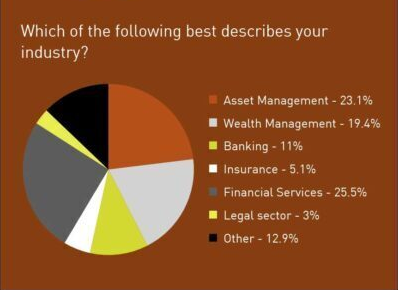
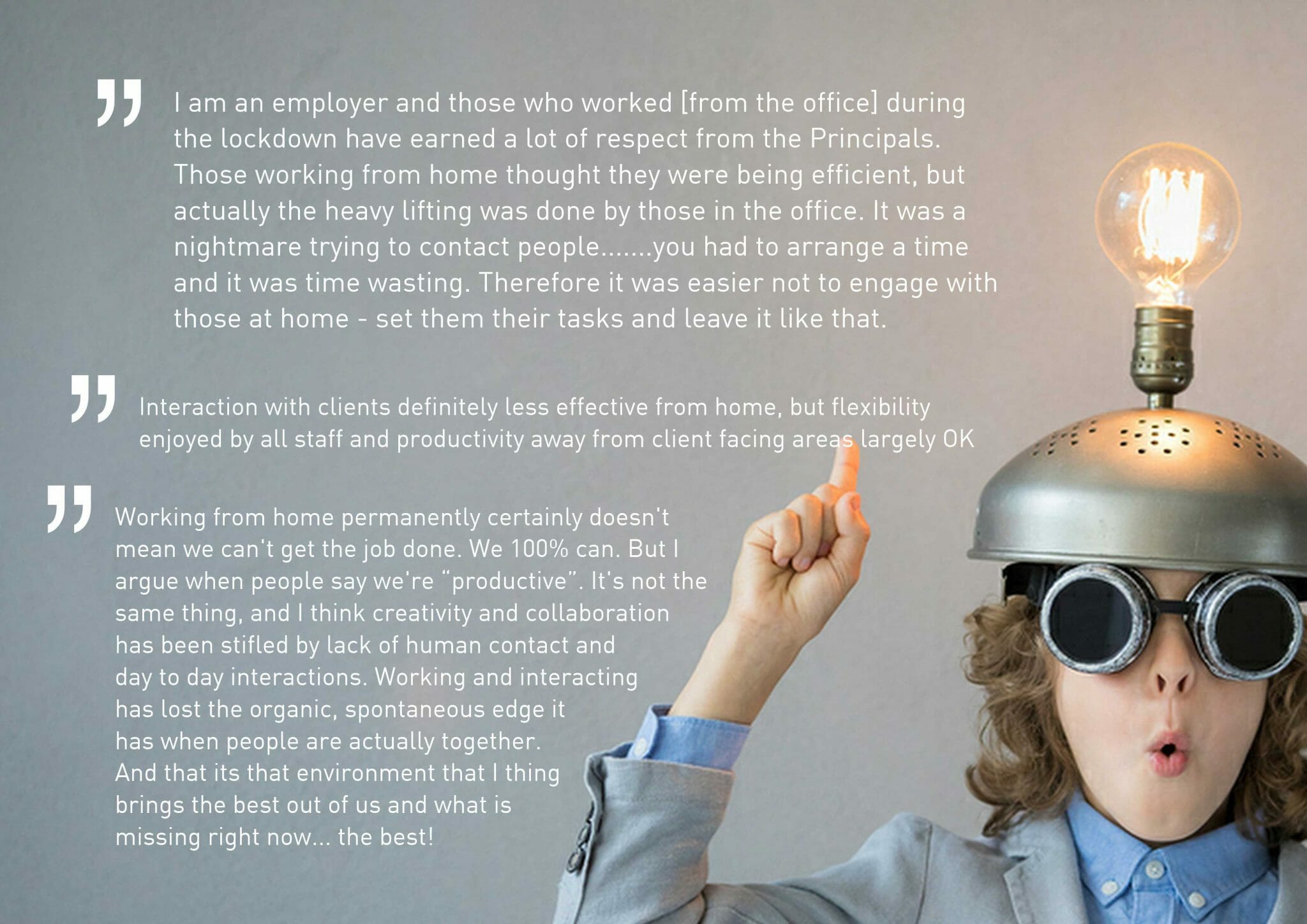
As the charts further below show, 89% of respondents in October felt that a combination of office and home-based working would be ideal, vs 92% in June. However, whilst the appetite for either full-time home or office working has remained fairly stable, there is a clear shift towards wanting a greater portion of the working hours to be remote. 44.4% of respondents would prefer to be mainly home-based, vs 31.5% six months ago.
Indeed, unlike business leaders, employees’ perception of the success of home working has in fact improved since June, as the graphs just below show.
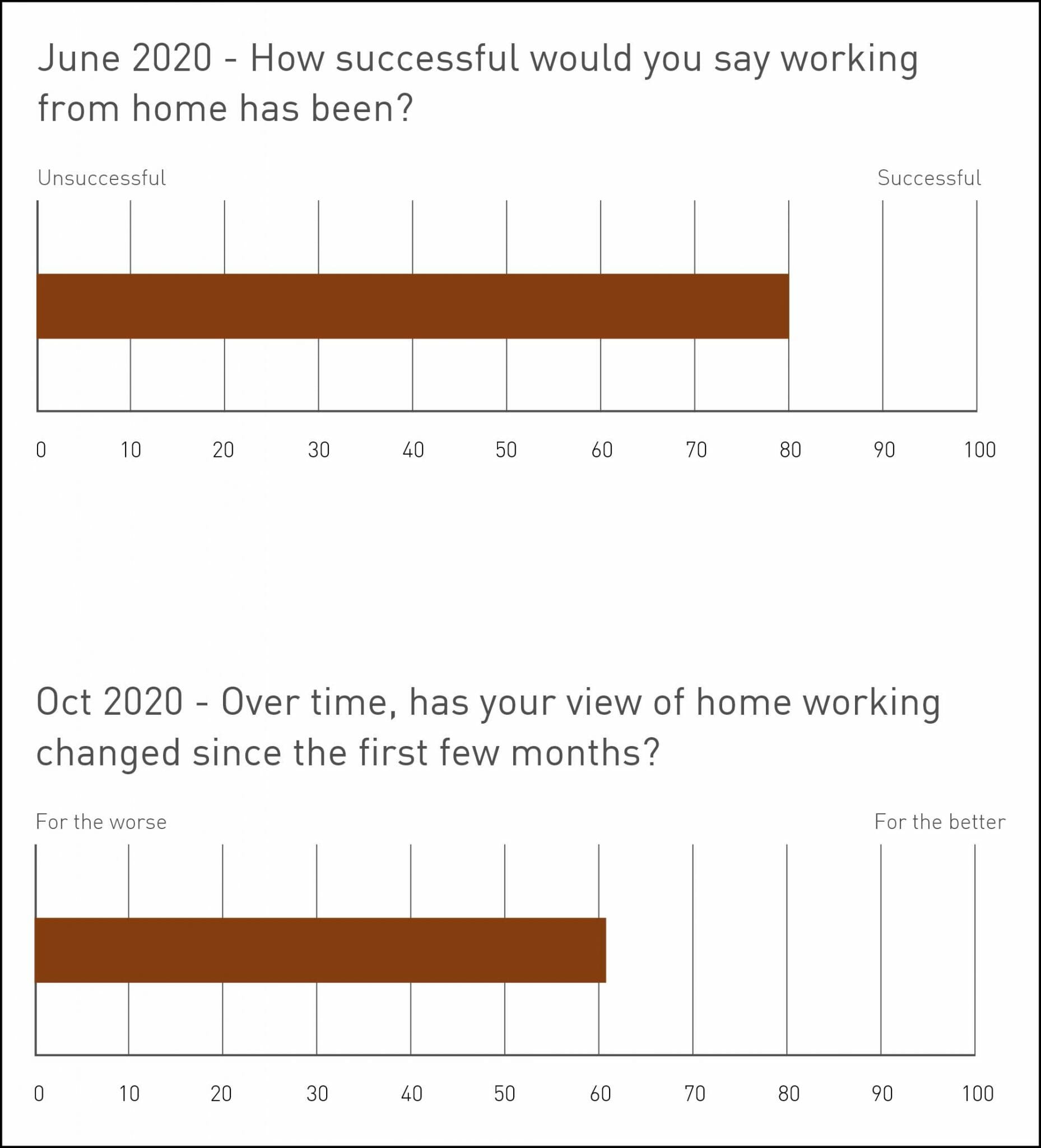
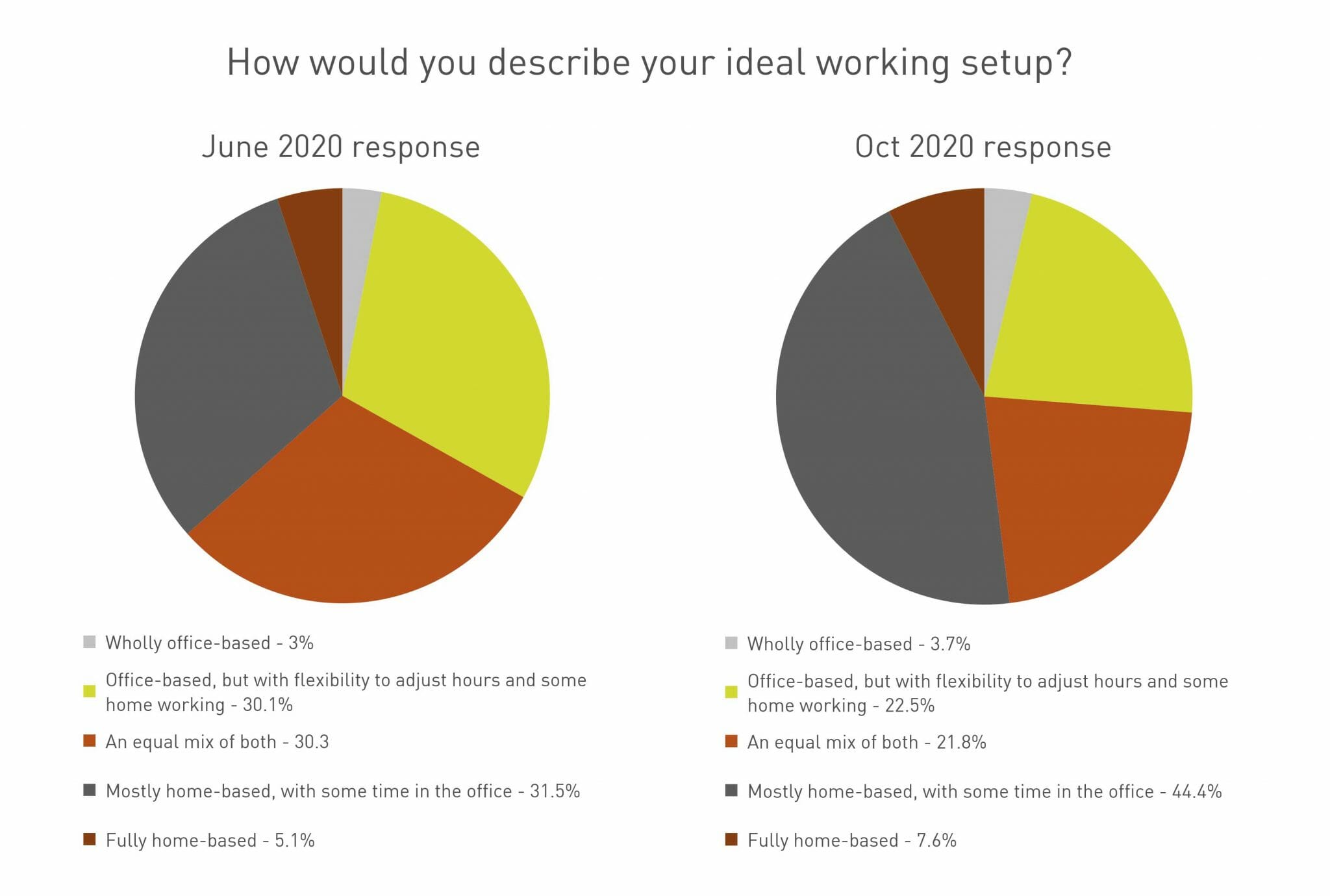
The comments
We asked our respondents for their comments, and a number of themes emerged. A large number of respondents highlighted the lack of commuting and improved family time and work-life balance as a major benefit. However, many also said that they now work longer hours, replacing the previous commuting time, and many were missing social interaction and feeling isolated. Whilst there is clearly a desire for flexible working, there seemed to be a consensus that enforced home-working is neither flexible nor desirable.
Among the issues encountered, respondents listed business development, client care, creativity and growth as being harder when working remotely, as well as training and mentoring, whilst admin and task-driven work was often listed as easier.
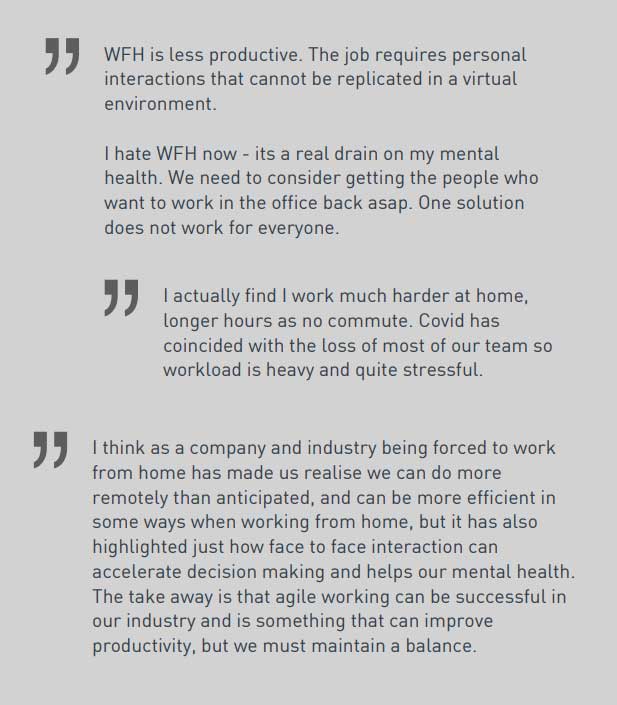
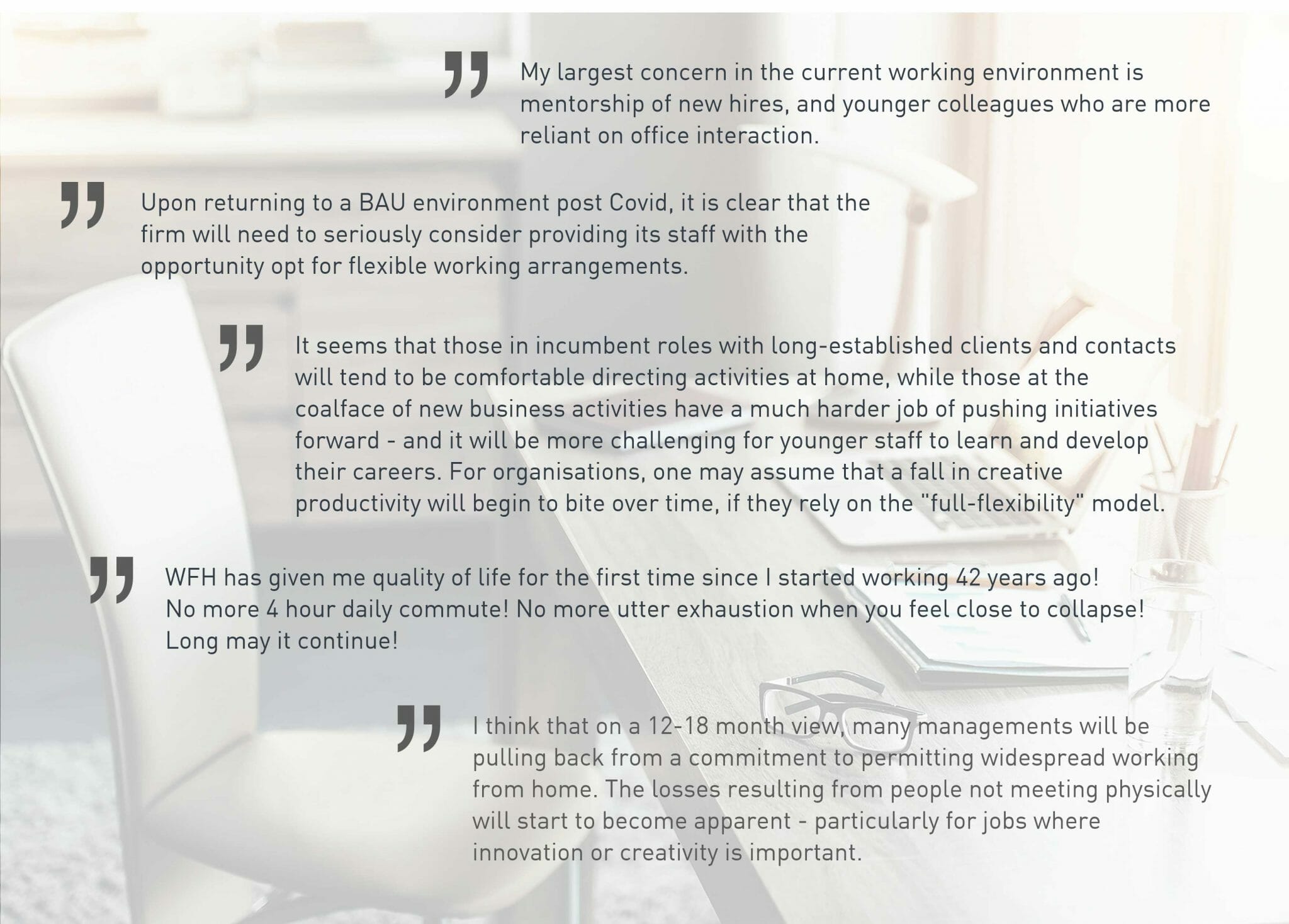
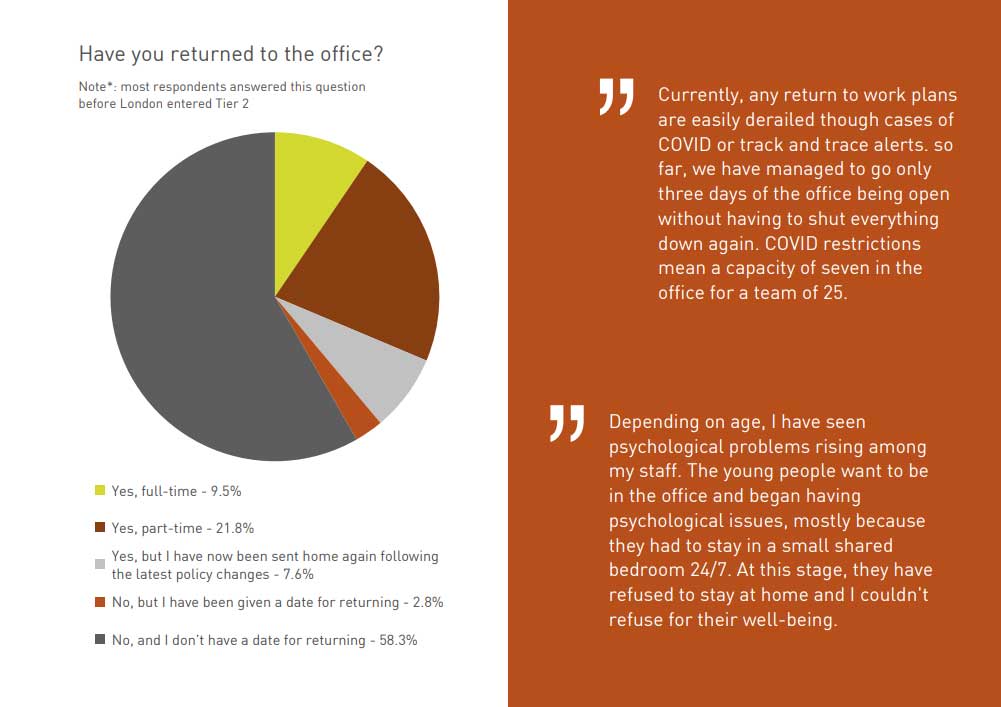
About Fram Search
Established in 2010 by Simon Roderick, a recruiter with 20 years City recruitment experience, Fram Search is a specialist boutique financial services recruitment consultancy. We focus on permanent and interim recruitment in the UK & internationally. Our aim is to build close and lasting relationships with firms who become repeat customers, and with candidates who we help throughout their career.
We are a recruitment consultancy fit for the modern world.
Share this Post

